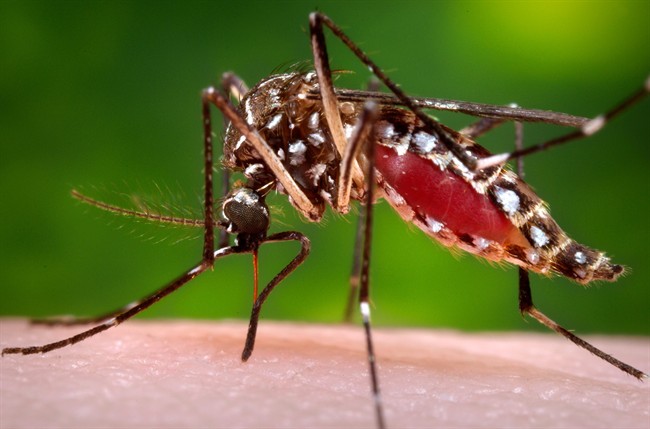The mayor of Hawaii Island has declared a state of emergency after more than 250 confirmed cases of dengue fever on the island since late October.

The island, commonly referred to as the Big Island, is a popular tourist destination, with more than 1.5 million visitors in 2015.
READ MORE: Dominican Republic dengue cases and deaths prompt government alert
Mayor William P. Kenoi made the emergency proclamation Monday. Officials are using mosquito control measures along with public education and outreach to break the cycle of infection and transmission.
The emergency period will be in place for 60 days or until further notice from officials.
Dengue fever is transmitted by infected mosquitoes. The disease causes flu-like symptoms such as high fever, nausea and joint and muscle pain. In severe cases it can cause bleeding from the nose or gums, persistent vomiting and can be fatal, according to Health Canada.
Symptoms typically appear three to 14 days after a bite, and protecting yourself from mosquito bites is the best way to avoid infection. There is no vaccine or medication to prevent infection.

Get weekly health news
Dengue fever is not spread from person to person.
Of the confirmed cases on the island, 227 are Hawaii Island residents and 24 are visitors.
The Hawaii Department of Health (HDOH) says it is “investigating a cluster of locally-acquired cases of dengue fever on Hawaii Island.”
The health agency states that dengue is not endemic to Hawaii, but is occasionally brought in by infected travellers.
“The Big Island and the rest of Hawaii remain safe destinations for visitors and residents,” the HDOH states.
This alert comes a week after the World Health Organization declared the recent, rapid spread of Zika virus an international public health emergency. Zika virus is also mosquito-borne and related to dengue, West Nile and Japanese encephalitis viruses, according to the European Centre for Disease Prevention and Control.
Zika virus has also been found to be transmitted via some bodily fluids.
READ MORE: Zika virus: U.S. health officials confirm first case spread through sex
It has been linked to birth defects in the Americas, with officials in some countries warning women against getting pregnant.
The Public Health Agency of Canada has assessed the overall risk of the Zika virus to Canadians as “very low.”
WATCH: We must use Dengue fever as a reference point for Zika virus: WHO





Comments